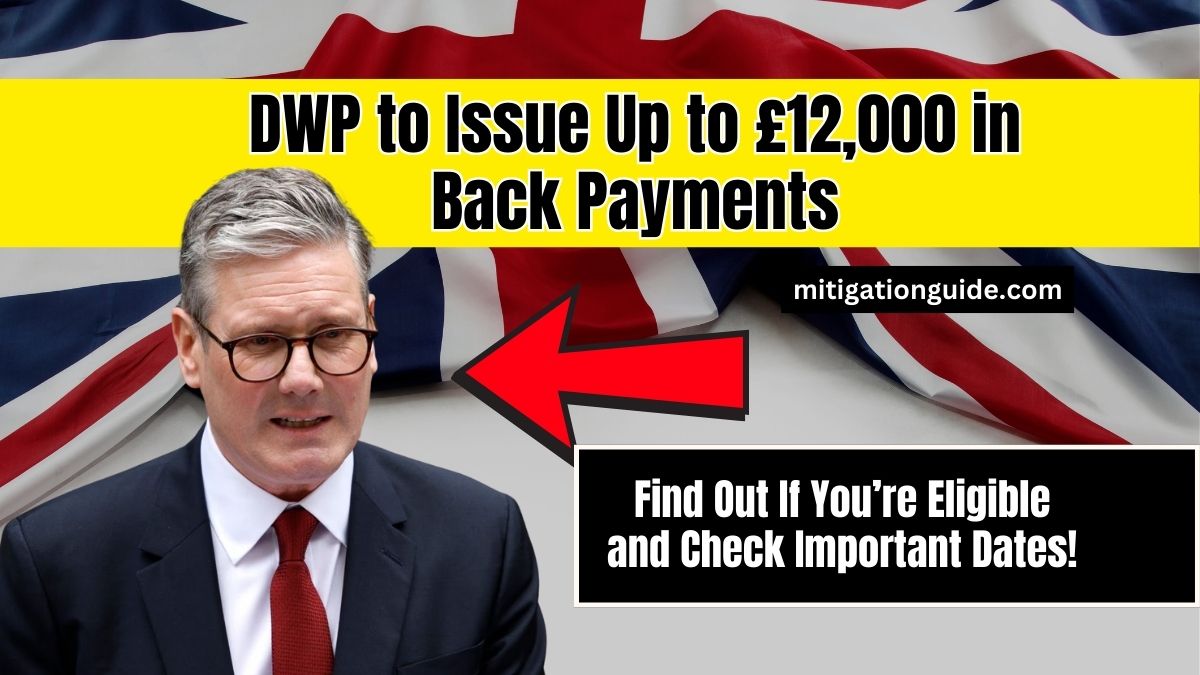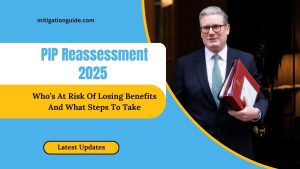In a significant development that could affect thousands of individuals across the UK, the Department for Work and Pensions (DWP) is revisiting Personal Independence Payment (PIP) claims.
Due to a 2019 Supreme Court ruling, the DWP is now reassessing cases, and some claimants may be entitled to back payments of up to £12,000.
This process will primarily benefit individuals who have mental health conditions such as anxiety, depression, or autism, as their needs were previously misunderstood in assessments.
What Is Happening with PIP Reviews?
The DWP is correcting past mistakes in the way it assessed applicants who needed social support for daily activities, particularly for mental health-related conditions.
For those whose support needs weren’t properly considered, the DWP is now offering back payments, which could amount to thousands of pounds.
The process is ongoing, and it’s crucial for eligible individuals to take action and ensure they receive the back payment they are owed.
If you or someone you know made a PIP claim between April 2016 and July 2019, it’s worth checking if your case is being reviewed.
Key Details about the DWP Review
| Aspect | Details |
|---|---|
| Who is affected? | PIP claimants who were underpaid due to incorrect social support assessments. |
| Payment amount | Up to £12,000 in back payments, with an average of £5,285. |
| Claims under review | Over 326,000 claims are being reassessed. |
| Review deadline | The review process will be completed by end of 2025. |
| Claims under review | PIP claims made between 6 April 2016 and 18 July 2019. |
| Conditions included | Autism, anxiety, depression, PTSD, and other mental health issues. |
| Action needed? | The DWP is reaching out to eligible claimants, but you can contact them to check your case. |
| Official resource | gov.uk/pip |
Why Is This Review Happening?
The change follows the MM judgment from 2019, which clarified that the DWP’s previous approach to assessing applicants who required social support was too narrow. The DWP had been considering only ongoing and planned support, ignoring support needed during actual interactions.
This meant many individuals with mental health conditions received lower payments or were not awarded any PIP at all.
The DWP has admitted this error and is now revisiting the cases that were impacted by this misinterpretation. This review aims to ensure that everyone receives the right amount of financial support, especially those who were previously underpaid.
Who Is Eligible for Back Payments?
If you made a PIP claim between 6 April 2016 and 18 July 2019, and:
- You have a condition that impacts your ability to interact socially.
- You needed support from another person to communicate, calm down, or feel safe during social interactions.
- You were underpaid or not awarded PIP due to how your needs were assessed.
Common Conditions Affected
- Autism Spectrum Disorder (ASD)
- General Anxiety Disorder (GAD)
- Post-Traumatic Stress Disorder (PTSD)
- Depression
- Social anxiety
- Schizophrenia or bipolar disorder
Even if your condition isn’t listed, if social interaction was difficult for you and you required assistance, you might still qualify for back payments.
How to Check Your Eligibility for Back Payments: A Step-by-Step Guide
- Review your PIP claim history:
Did you apply for PIP between April 2016 and July 2019? Were you underpaid or denied? - Assess your support needs:
Did you need help with communication, calming down, or socializing during interactions? - Gather your documentation:
Collect any relevant medical records, GP letters, or care reports from that period. - Contact the DWP:
You can call 0800 121 4433 or use the textphone at 0800 121 4493 to inquire about your case and check if it’s being reviewed under the MM judgment. - Seek professional advice:
If you’re unsure about your case, reach out to organizations such as Citizens Advice or Disability Rights UK for support.
Real-Life Example
Consider Sarah, who has autism and severe anxiety. She struggled to attend appointments and communicate effectively.
After being denied PIP in 2017, her case was reassessed under the new review, and she received £9,000 in back payments. This example illustrates the potential benefits of the ongoing reviews.
Tips to Strengthen Your Case
- Be specific: Describe in detail how your condition impacted your ability to engage socially during the original claim period.
- Provide strong evidence: Include letters from healthcare professionals, carers, or family members supporting your case.
- Be proactive: Don’t wait for the DWP to contact you—reach out and inquire about your claim’s status.
Mistakes to Avoid
- Assuming the DWP will contact you: While reviews are happening, not everyone will be automatically notified.
- Ignoring past decisions: Even if you were denied years ago, your case might now qualify for a review.
- Failing to update contact details: Ensure the DWP has your current address and phone number.
Support for Carers and Family Members
If you’re caring for someone who might be eligible for back payments, you can assist by:
- Checking their PIP history and helping them gather evidence.
- Calling the DWP on their behalf (with their consent).
- Assisting with appeals if the decision still seems incorrect.
Government Measures to Prevent Future Errors
The DWP is taking steps to ensure that similar errors do not occur in the future:
- Automated Pension Adjustments: To avoid manual errors, pension adjustments will be automated moving forward.
- Improved Oversight: Regular audits and better oversight of pension records will help identify discrepancies early.
- Enhanced Communication: Efforts to improve communication with pensioners will ensure that everyone is aware of their entitlements.
Professional Advice
According to Ben Johnson, a welfare rights advisor with over 15 years of experience:
“This is one of the most significant back payment programs in recent years. Many individuals with mental health conditions were wrongly assessed in the past. If you believe your case was affected, don’t delay—seek assistance.”
He recommends seeking help from Citizens Advice, local disability charities, or law centres if your situation is complex or if you were unfairly denied support in the past.
The DWP’s reassessment of PIP claims presents a significant opportunity for many individuals who were underpaid due to inaccurate assessments of their needs.
With proper documentation and action, eligible claimants can receive up to £12,000 in back payments. Don’t hesitate to reach out to the DWP or seek professional advice to ensure you’re not missing out on what you’re owed.
FAQs
Who qualifies for the £12,000 back payments?
Pensioners who were underpaid due to administrative errors, including married women, widows, and individuals over 80.
How can I check if I qualify for back payments?
Review your pension records and contact the DWP Pension Service at 0800 731 0469 for verification.
Do I need to apply for these payments?
No, the DWP will automatically issue payments to those who are eligible. However, individuals who think they qualify but haven’t been contacted should reach out to the DWP.




